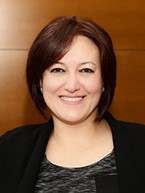As the global community continues to grapple with the coronavirus (COVID-19), the Atlantic Council is open for business. Our business, meetings, and events, however, are occurring virtually. For more information, please read an update from our President and CEO.
Russian President Vladimir Putin has assiduously courted Turkey for well over a decade, with largely positive results. Difficulties between Ankara and Washington over Syria and the 2016 coup attempt have also provided openings for Putin. At the same time, differences between Moscow and Ankara in the South Caucasus, Syria, and Libya have served as a reminder of traditional differences between Russia and Turkey. But overall, the relationship has gotten closer, including in the defense field.
The recent re-escalation of tensions between Russia and Ukraine sharpened questions about Turkey’s role as both a partner and competitor with Moscow. While it has deepened ties with Russia, Turkey has simultaneously been developing a close strategic relationship with Ukraine. At the height of tensions between Moscow and Kyiv this spring, Ukrainian president Volodymyr Zelenskyy and Turkish president Recep Tayyip Erdoğan signed a joint declaration formalizing Ankara’s support for Ukraine’s territorial integrity and NATO membership.
In the South Caucasus, Turkey has fostered friendly relations with Azerbaijan and Georgia, much to the chagrin of Russia. Turkey’s growing presence is now a significant strategic challenge to Russian influence in the region—Turkish military support for Azerbaijan proved decisive in its war against Moscow-backed Armenia last fall.
To what extent are Russia and Turkey allies and to what extent are they competitors? How might their relationship affect the future of the Kremlin’s war in the Donbas and regional stability concerns in the South Caucasus?
Defne Arslan, director of Atlantic Council IN TURKEY, welcomes, followed by introductory remarks from Damon Wilson, executive vice president of the Atlantic Council. Ambassador Mehmet Fatih Ceylan, former deputy undersecretary at the Turkish Ministry of Foreign Affairs, Dr. Pavel Felgenhauer, a Moscow-based independent defense analyst and columnist for Novaya Gazeta, Dr. Yevgeniya Gaber, foreign policy advisor to the prime minister of Ukraine, and Ambassador John Herbst, director of the Atlantic Council’s Eurasia Center, join to discuss the Turkey-Russia rivalry and its implications for Ukraine and the South Caucasus. Melinda Haring, deputy director of the Eurasia Center, moderates.
This event will not feature an in-person audience. You will be able to join via desktop or mobile app, through your web browser, or by phone. To join the question and answer period, you must join by app or web.
Register below for details on joining the virtual audience.


Follow us on social media